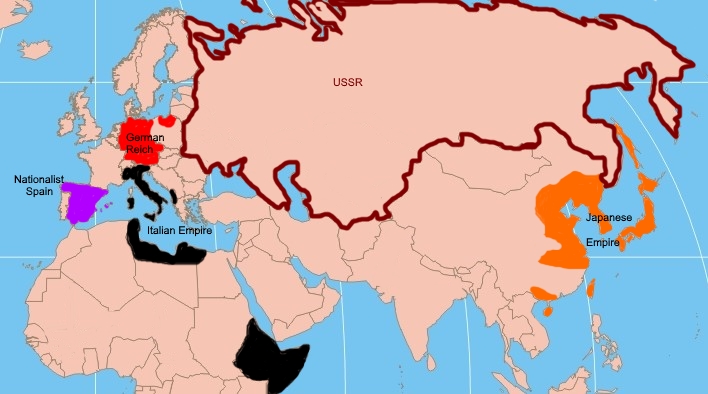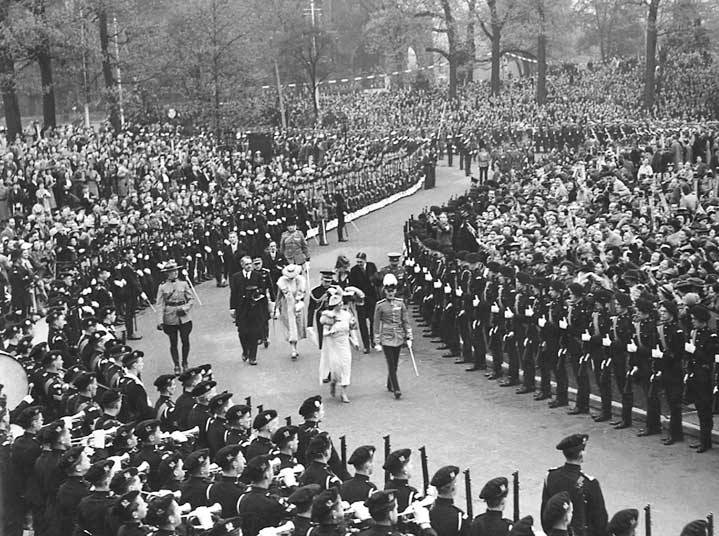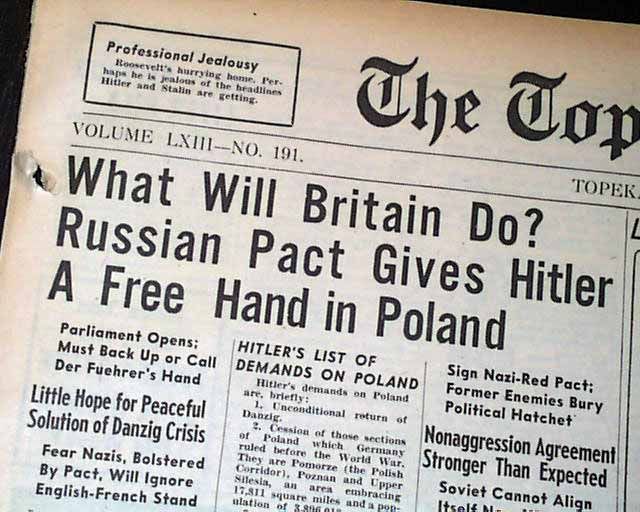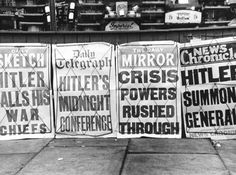1939 was a year of uncertainty. On the one hand, Canada and Canadians were finally emerging from the Great Depression. Productivity and unemployment had hit bottom in 1933-34. There were still too many unemployment men and there were still too many businesses operating at a reduced capacity, but the economy had been slowly improving for five years.
The same could not be said for the international situation. Italy, and Germany were ruled by dictators with millions of followers. Mussolini in Italy and Hitler in Germany repeatedly spoke about expanding their countries'size and power at the expense of their neighbours. Mussolini promised his supporters that he would create a "Second Roman Empire" while Hitler spoke of a "Thousand Year Reich". Even in far off Asia, Japan was controlled by its military. Its battle cry was "Dai Nippon Banzai" - "ten thousand years".
In 1938 the Western World held its collective breath as Hitler threatened to set off a world war over his demand to occupy the Sudetenland region of Czechoslovakia. Now, in 1939, new war scares in Europe were emerging almost every month. In March, the German army Germany occupied the rest of Czechoslovakia without international protest. The same month, Nationalists and their dictatorial leader, Franco, - with help from Italy and Germany - won the Spanish Civil War. In April Italian forces invaded Albania and in May, Germany and Italy signed the "Pact of Steel" alliance.

There were some more positive distractions in Canada, however. In April, the Boston Bruins defeated the Toronto Maple Leafs 4 games to 1 to win the Stanley Cup. In May, King George VI and his wife, Queen Elizabeth began a phenomenally successful tour of Canada. The King was the first reigning British monarch to visit Canada. The royal couple were surrounded by huge crowds wherever they went. In Ottawa, His Majesty dedicated the National War Memoria. In Western Canada, towns and cities along the rail line more than quadrupled their populations overnight as people flooded in to see the Royals.

By August, however, disturbing international events again dominated the news. On August 23rd the USSR and Nazi Germany publically announced their mutual non-aggression pact, allowing the German army the freedom to attack Germany's neighbours without feat of a Soviet response. In his speeches Hitler demanded that Poland surrender its German-speaking regions to German authority.

In response the British Parliament approved the War Powers Act giving the British government widespread powers to prepare the country for war. The Royal Navy was ordered to prepare for war. All naval, coastal defense, radar and anti-aircraft units were called to action. The French government began similar measures to prepare for war.
What the French and British did not know was that Hitler had already ordered the German military to begin preparations for its attack on Poland. The Germans almost attacked on August 25th but backed off at the last minute.
On August 30th, Poland began a full mobilization of its forces.
The next day disguised German special forces units began attacks in Poland in advance of the main attack on September 1st.
